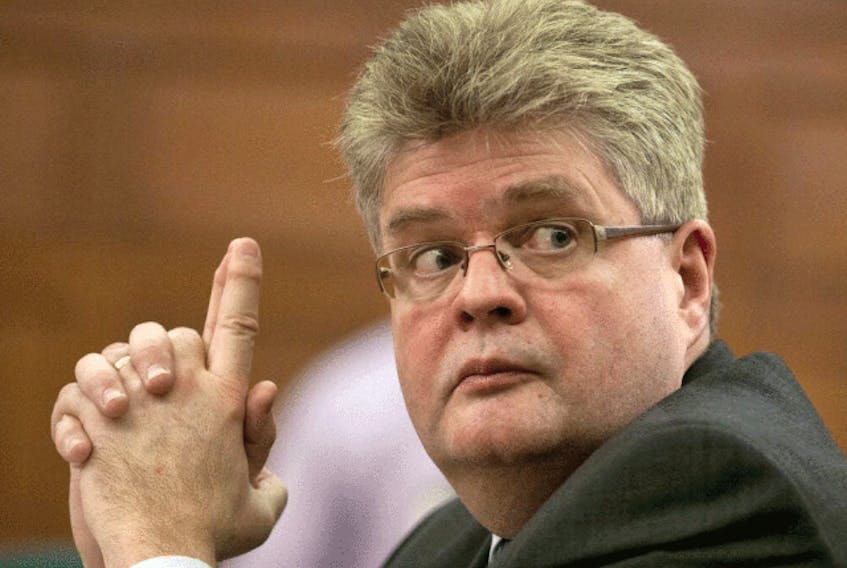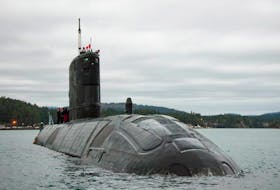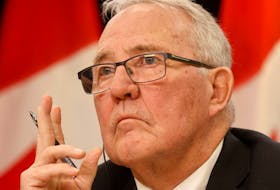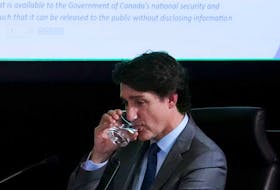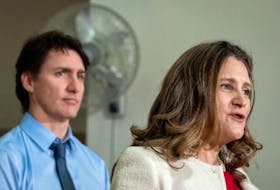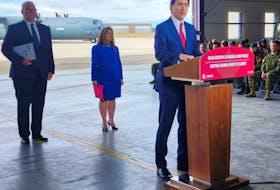When Justin Trudeau stood before the cameras to announce the Canada Student Services Grant on a bright but chilly spring morning, he would have had no conception that he was playing with political dynamite.
The announcement on April 22 was principally about the launch of the Canada Emergency Student Benefit. The service grant was tacked on, almost as an afterthought – a means of encouraging volunteerism among young people. Students would soon be eligible for $1,000-$5,000, depending on hours worked, Trudeau said. “Your energy and skills can do a lot of good right now.”
This program – and the awarding of a $900 million contribution agreement with the WE Charity – is now the subject of two parliamentary investigations (by the finance and government operations committees) and a third probe of Trudeau’s behaviour by the ethics commissioner.
The findings could prove ruinous to the Liberal government and some of its most senior office-holders.
The finance committee is the first to begin its deliberations on Thursday, when Bardish Chagger, minister for diversity, inclusion and youth, and senior public servants from the departments of Employment and Social Development and Canadian Heritage are set to appear.
The expectation of informed watchers is that the committees will shed more heat than light on the matter. They will call witnesses, who will have been warned they can’t reveal advice to ministers, and ask for documents the government will try to redact to the point of illegibility on grounds of Cabinet confidences.
The Harper government was found guilty of a prima facie breach of parliamentary privilege in 2010 by the Speaker of the House for not disclosing documents on Afghan detainees but that does not mean the House committees, and potentially Ethics Commissioner Mario Dion, won’t have a fight on their hands trying to access the documents in this case.
Given the less partisan nature of Dion’s inquiry, he may face fewer obstructions. He is likely to predicate his questions to public office holders on the contents of the documents – an advantage over committees that will interrogate witnesses first and get the documents at a later date.
The chronology suggests it is not going to go smoothly for the government.
Both Trudeau and Finance Minister Bill Morneau have already acknowledged they should have removed themselves from the process because of family connections to WE and the perception of conflict of interest.
But the much more serious charge is that the government’s senior decision-makers stacked the deck in WE’s favour.
Trudeau and Morneau look vulnerable to such accusations. WE and its founders, the Kielburger brothers, were known to both men and the youth issue has been close to Trudeau’s heart since he chaired the Katimavik organization before entering politics.
Timelines were short and the work labour-intensive. Arguably, the WE solution was not unreasonable
The prime minister announced the outline of the program on April 22, which suggests that in the days before that date ministers, political staff and senior bureaucrats in the Prime Minister’s Office, the Privy Council Office, Chagger’s office and, crucially, in Morneau’s office had built the architecture of what became the Canada Student Service Grant. Documents from those discussions should be made available to the committees and Dion, since Cabinet was not involved at this stage.
The key driver would have been Morneau’s office and the department of Finance, given the cost implications. Having created the parameters of a program that envisaged paying 20,000-40,000 students up to $5,000 each to enroll in subsidized volunteer placements, the problem was handed to the public service to solve.
The Cabinet paper from Employment and Social Development Canada recommended WE, Canada’s largest youth charity, which has more than 80 NGO partners to help deliver programs.
While the opposition refers to a “sole-source contract”, this was a contribution agreement, governed by the rules on transfer payments, not a procurement that required a tendering process. There was nothing inherently wrong in striking a deal with WE without calling for bids.
Given the scale of the program and the tight timeline, the only realistic alternative was to hand the job to Service Canada, which screens and assesses eligibility for the Canada Summer Jobs program that provides 80,000 work placements for young people. The drawback with involving Service Canada was that it was fully engaged with administering the Canada Emergency Response Benefit.
The workings of parliamentary committees are likely to be tuned out by vacationing Canadians. But Dion’s report will be another matter
The recommendation to sign a deal with WE was sent to the COVID-19 Cabinet committee, chaired by Chrystia Freeland in early May – a committee on which Morneau also sits.
If Freeland’s committee had spotted any warning signs, it could have sent the WE proposal back to bureaucracy. It clearly did not do so because it was discussed by full Cabinet on May 22. Contrary to popular belief, Cabinet does not vote on proposals – they are talked out and the prime minister then sums up the consensus. Again, if there had been broad dissent in the room, it could have been sent back to Freeland’s committee. Trudeau said he and “other people” raised the potential for conflict of interest but it clearly wasn’t a strong enough sentiment to derail the proposal.
There can be no doubts that the prime minister owns the decision, despite his protestations that he “made a mistake” and should have recused himself.
He and Morneau had a final chance to send the idea back to the drawing board when the bureaucracy sent both men funding notes requiring their sign off.
Chagger didn’t launch the service grant and the I Want to Help web portal until June 25 – an inexplicable delay in the circumstances.
Timelines were short and the work labour-intensive. Arguably, the WE solution was not unreasonable.
The question Dion will be asking is whether the program architecture was designed so that the entering into a contribution agreement with WE was the only possible conclusion the public service could reach.
Veterans of the Harper regime remember similar “pick a card, any card…” manoeuvres, not least the awarding of $15 million of federal money to the Abilities Centre in Whitby, the home riding of late finance minister, Jim Flaherty.
As one official put it: “There is no immaculate conception in government.”
If Dion concludes Trudeau and Morneau were guilty of stacking the deck, the political implications could be far-reaching.
In the short-term, the workings of parliamentary committees are likely to be tuned out by vacationing Canadians.
But Dion’s report will be another matter, particularly if it proves to be the third scathing indictment of this prime minister’s high-handed approach to the rules.
It would be no great surprise to see the Liberals move to take the sting out of the report before it lands. That might mean changes in political offices – the chiefs of staff in both Trudeau’s and Morneau’s offices are charged with the task of screening for conflicts of interest, yet patently did not do so in this case.
Freeland’s role is raising eyebrows in some circles. She has been noticeable by her absence in the WE fall-out, despite her critical role in the agreement proceeding to Cabinet. Did she allow the prime minister to stumble?
Morneau may be most exposed, given his department’s hand in the program’s design.
Mark Carney, the former governor of the Bank of England, returns to these shores this summer and there are already those who think he will be finance minister by Christmas.
Most of all, Trudeau’s reputation will take a hit. A new poll by maru/Blue says 58 per cent of Canadians think he should stay as Liberal leader and let an election decide his fate, even if found guilty by the ethics commissioner a third time.
Whether that number holds firm may depend on the tone of Dion’s rebuke. He is unlikely to stay the rod.
In his report on the SNC affair, Dion rejected that idea that Trudeau could not be “vicariously liable” for the actions of his staff, saying all involved were acting “under the direction and authority of the prime minister”. He is unlikely to reach a different conclusion in this case.
Some senior Liberals say they are relaxed about the whole WE affair, having ridden out the SNC scandal last year. But they are not in a majority position any longer.
Emboldened opposition parties could combine to table a motion of no-confidence in the prime minister – leading to a decision on Trudeau’s part: Step down as leader or visit the Governor General.
The government could preempt such a move by proroguing Parliament and re-launching its re-election efforts with a Throne Speech and a budget.
That is all just frivolous speculation. But, having talked to a number of Liberal MPs, it seems they want someone other than themselves to pay for this fiasco with their job.
• Email: [email protected] | Twitter: IvisonJ
Copyright Postmedia Network Inc., 2020

